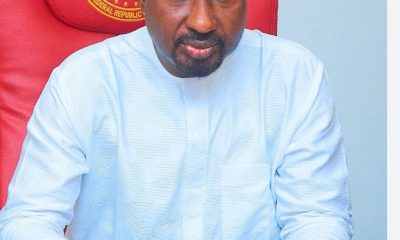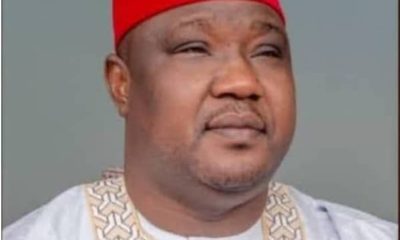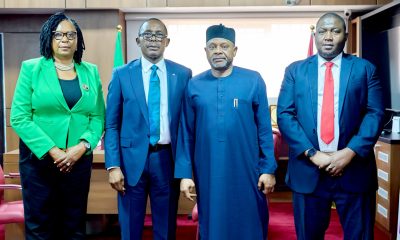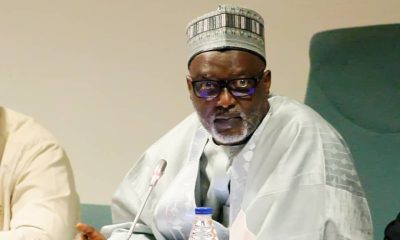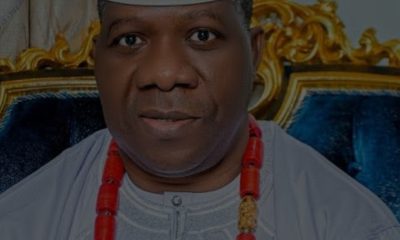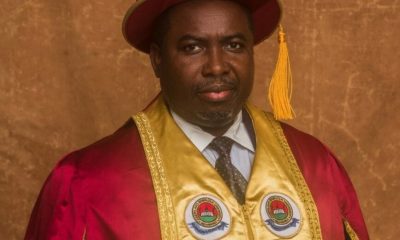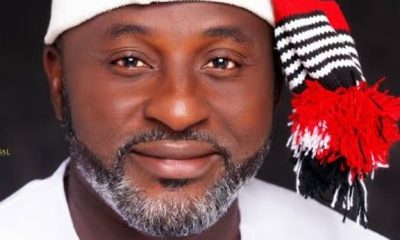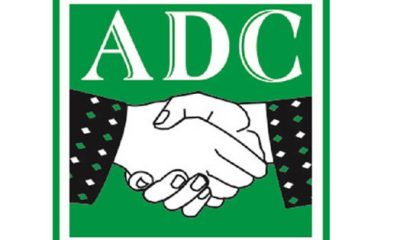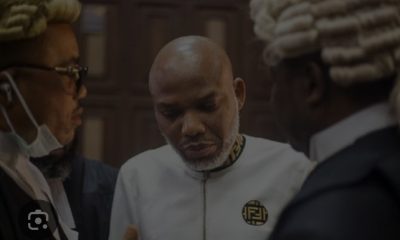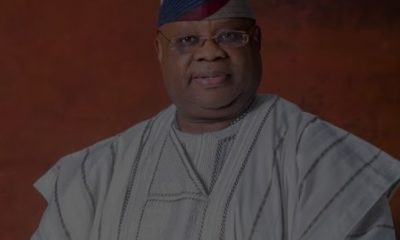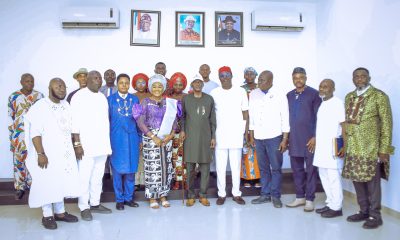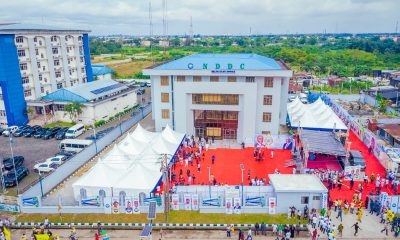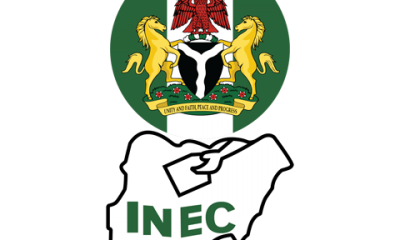Politics
Rivers Assembly gives Gov Fubara fresh 48 hours to sack cabinet members, submit names for screening •Summons RSIEC Chairman, others

Politics
When Transparency Becomes Luxury: INEC and ₦1.5B FOI Controversy
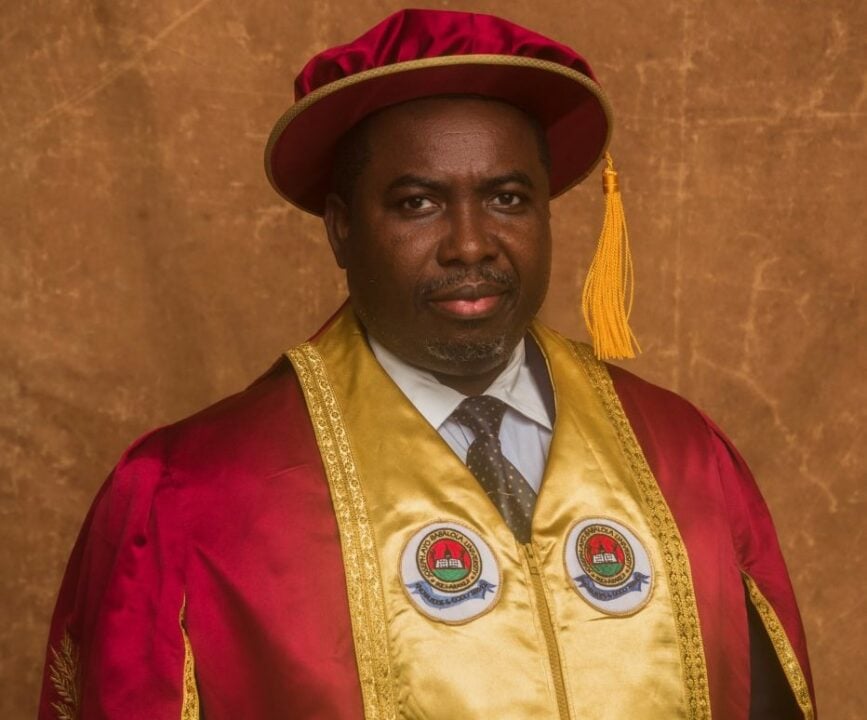
When Transparency Becomes Luxury: INEC and ₦1.5B FOI Controversy
By Chike Walter Duru
When the Independent National Electoral Commission (INEC) recently demanded a staggering ₦1.5 billion from a law firm for access to the national register of voters and polling units, many Nigerians were left bewildered. The request was made under the Freedom of Information (FOI) Act, 2011 – a law designed to make public records accessible, not to commercialize them. INEC’s justification, couched in legalese and bureaucratic arithmetic, raises a deeper question: Is Nigeria’s electoral umpire genuinely committed to transparency and accountability?
At the heart of this controversy is a simple statutory principle. Section 8(1) of the Freedom of Information Act clearly stipulates that where access to information is granted, the public institution may charge “an amount representing the actual cost of document duplication and transcription.” The framers of this law envisioned modest fees; not financial barriers.
INEC, however, appears to have stretched this provision beyond reason. By invoking its internal guideline of ₦250 per page, the Commission arrived at the colossal figure of ₦1,505,901,750 for 6,023,607 pages – supposedly the total pages needed to print the entire national voters’ register and polling unit list. It is a mathematical exercise that may be sound on paper, but absurd in context and intent.
Let us be clear: transparency is not a privilege that comes with a price tag. It is a fundamental right. The Freedom of Information Act exists precisely to ensure that institutions like INEC cannot hide behind bureaucracy or cost to deny citizens access to information that belongs to them.
INEC’s justification, however elaborate, falls flat against the law’s overriding provisions. Section 1(1) of the FOI Act affirms every Nigerian’s right to access or request information from any public institution. More importantly, Section 1(2) establishes that this right applies “notwithstanding anything contained in any other Act, law or regulation.” This means that no internal guideline, regulation, or provision of the Electoral Act can supersede the FOI Act, within the context of access to information.
By relying on Section 15 of the Electoral Act 2022 and its own “Guidelines for Processing Certified True Copies,” INEC seems to have elevated its internal processes above a federal statute – a position that is both legally untenable and administratively misguided.
Civil society organisations have rightly condemned INEC’s response. The Media Initiative Against Injustice, Violence and Corruption (MIIVOC) called the fee arbitrary and unlawful, while the Media Rights Agenda (MRA) described it as a deliberate attempt to frustrate legitimate requests under the FOI Act. These reactions are not misplaced. Charging ₦1.5 billion for public records is tantamount to weaponising cost – turning what should be a transparent process into a pay-to-play system.
The Attorney-General of the Federation’s FOI Implementation Guidelines pegged the standard charge for duplication at ₦10 per page. Even at that rate, printing the same documents would not amount to anything close to ₦1.5 billion. Moreover, in an age of digital data, it is difficult to believe that the only way INEC can share information is through millions of printed pages.
It is worth noting that the National Register of Voters is a digital database – already compiled, stored, and backed up electronically. The polling unit list is also digitised and publicly available. What, then, justifies this astronomical fee?
Democracy thrives on openness. The credibility of any electoral body depends not just on the conduct of elections, but also on the degree of public confidence in its processes. If the cost of accessing basic electoral data runs into billions, how can civil society, researchers, or ordinary citizens participate meaningfully in democratic oversight?
The African Commission on Human and Peoples’ Rights’ Guidelines on Access to Information and Elections in Africa (2017) are explicit: election management bodies must proactively disclose essential electoral information, including voters’ rolls and polling unit data. Nigeria, as a signatory to this framework, is obligated to promote – not restrict access to such information.
By placing financial barriers in the way of public access, INEC risks undermining not only its own credibility but also Nigeria’s broader democratic integrity. Transparency should not be a privilege of the rich or the powerful. It should be a right enjoyed by all.
This incident presents an opportunity for reflection and reform. INEC must immediately review its internal cost guidelines for information requests and align them with the FOI Act and the Attorney-General’s Implementation Guidelines. More importantly, it should embrace proactive disclosure by publishing the national register of voters and polling units in digital formats that are freely accessible to the public.
There is no reason why information already stored electronically should require billions to access. Doing so not only contravenes the spirit of the FOI Act but also erodes public trust in the Commission’s commitment to open governance.
Access to information is the lifeblood of democracy. It empowers citizens to hold institutions accountable and ensures that governance remains transparent. INEC’s ₦1.5 billion charge is not merely excessive; it is a dangerous precedent that could embolden other public institutions to commercialize public data and silence scrutiny.
If Nigeria must advance its democratic gains, the culture of secrecy and bureaucratic obstruction must give way to openness and accountability. INEC should lead that transformation, not stand in its way.
The Commission owes Nigerians not just elections, but the truth, transparency, and trust that sustain democracy.
Dr. Chike Walter Duru is a communications and governance expert, public relations strategist, and Associate Professor of Mass Communication. He chairs the Board of the Freedom of Information Coalition, Nigeria. Contact: walterchike@gmail.com
Politics
ICON Hon. (Chief) Amobi Godwin Ogah, a Distinguished Nigerian and An ICON
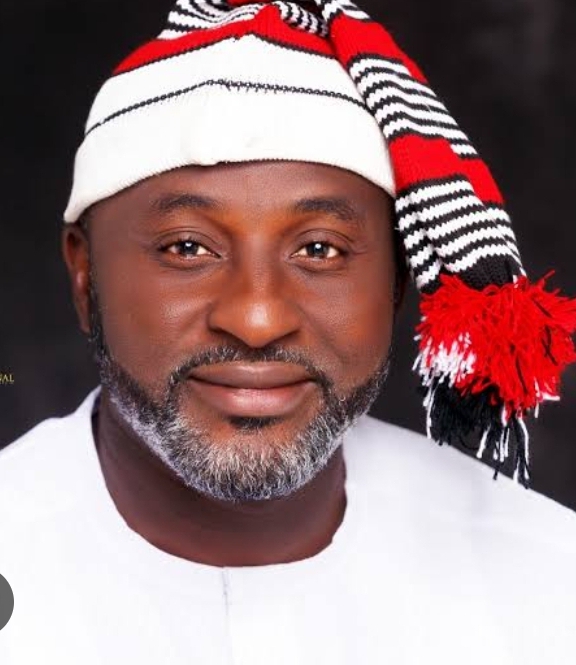
ICON
Hon. (Chief) Amobi Godwin Ogah, a Distinguished Nigerian and An ICON
By IGNATIUS OKOROCHA
Hon (chief) Amobi Godwin Ogah is a member of the 10th House of Representatives,representing Isuikwuato/Umunneochi Federal Constituency, Abia State and
Chairman, House Committee on HIV/AIDS, Tuberculosis and Malaria Control.
Born on the 16th of June, 1980, in the peaceful town of Onuaku, Uturu, in Isuikwuato Local Government Area of Abia State, Hon. (Chief) Amobi Godwin Ogah is a distinguished Nigerian lawmaker, entrepreneur, philanthropist, and grassroots mobilizer.
Before he joined mainstream politics, Hon Ogah was the Executive Director of seven subsidiary companies under Pauli-Mama Group of Companies.
His passion for service and development has consistently marked his journey, from private enterprise to the hallowed chambers of Nigeria’s National Assembly.
A proud son of Abia State, Hon. Ogah currently represents the Isuikwuato/Umunneochi Federal Constituency in the House of Representatives, where he also serves as the Chairman of the House Committee on HIV/AIDS, Tuberculosis, and Malaria Control—a critical role at the intersection of health policy and human development.
LEGISLATIVE IMPACT
Since assuming office, Hon. Ogah has made visible and measurable contributions to national discourse and local development. He has:
Sponsored impactful bills and motions, advocating for better healthcare delivery, youth empowerment, education reform, and rural development.
Championed community-oriented policies that directly benefit his constituency.
Consistently used his voice to demand transparency, equity, and good governance.
DEVELOPMENTAL INITIATIVES
Hon. Ogah believes that leadership is not just about laws—it’s about lives. This belief drives his infrastructural and social interventions across Isuikwuato and Umunneochi, including:
Construction and rehabilitation of rural roads for better access to markets and services.
Donation of learning materials and school infrastructure to underfunded communities.
Provision of portable water and solar-powered street lighting in rural areas.
Healthcare outreaches in partnership with NGOs and public health agencies.
EDUCATION EMPOWERMENT
A firm believer in the transformative power of education, Hon. Ogah recently awarded a full academic scholarship to Miss Okechukwu Mmesoma Josephine, a brilliant indigene of Isuochi, Umunneochi LGA. This scholarship covers tuition, books, and living expenses—an investment in both a future leader and the community at large.
NOTABLE QUOTE
“I was elected to be a voice for the people and a bridge to their dreams. My mission is simple: to serve, to speak, and to deliver.”
— Hon. (Chief) Amobi Godwin Ogah
AWARDS & RECOGNITIONS
For his impactful leadership, Hon. Ogah has received several commendations, including:
Outstanding Legislator Award (House Press Corps, 2024)
Humanitarian Service Award (Abia Youth Assembly)
Recognized as one of the Top 10 Performing First-Time Lawmakers in Nigeria (2025)
PERSONAL LIFE & VALUES
Hon. Ogah is a man of faith, family, and strong ethical grounding. He is married and blessed with children. Known for his humility and accessibility, he maintains close ties to his constituents and is often seen engaging directly with community leaders, youths, and elders alike.
He is also a Chief in his community(Agunecheibe 1 of Uturu)—a title he earned through years of service, philanthropy, and dedication to communal well-being.
LOOKING FORWARD
With unwavering commitment, Hon. Amobi Godwin Ogah remains focused on his core vision: building a constituency where opportunity, infrastructure, and justice work for all. Whether in the chambers of the National Assembly or the streets of Umunneochi and Isuikwuato, his presence continues to inspire hope and progress.
Politics
ADC to APC: No Number of Defections Can Save You in 2027

By George Mgbeleke
The African Democratic Congress (ADC) has reacted to comments made by the APC National Chairman, Dr. Nentawe Yilwatda, that “key ADC figures” would join the party next week, saying that defections will not save the ruling party in 2027.
The ADC, in a statement signed by Mallam Bolaji Abdullahi, the party’s National Publicity Secretary, said that the scramble for membership from across the political spectrum underscores the APC’s growing realisation that it has become hugely unpopular with ordinary Nigerians who now hate the ruling party for the hardship it has brought upon them.
The full statement read:
“The attention of the African Democratic Congress (ADC) has been drawn to the declaration by the National Chairman of the ruling APC, Dr. Nentawe Yilwatda, at a stakeholders’ meeting in Jos that “key ADC figures” will be received into the APC next week.
“This statement underscores a deep realisation by the ruling party that it cannot be saved even if all the governors in Nigeria defected to the ruling party. This is why even with all the governors and senators they have been bragging about, the APC is still desperate for ADC members.
“The truth remains that the APC realises that it has become the most hated party in Nigeria, and no amount of defections can save the party from Nigerians whose lives and livelihoods the ruling party has destroyed since it came to power.
Continuing the Statement added, “Like we have noted earlier, the recent gale of high-profile defections to the ruling party is properly understood by ordinary Nigerians as a gang-up against the people by a ruling elite who have left the people behind in abject poverty and are only interested in self-preservation even as their people wallow in misery.
“We wonder if the APC has run out of governors to seduce that it has now turned to shadowy references to unnamed ADC members? If these individuals are so “key”, let the chairman of the hated party mention their names.”
“There is nothing new in the game that the APC is playing. It is the same ruinous game that the PDP played at the height of its powers. The APC will also learn the bitter lesson that real democratic power lies with the people and not a few power merchants.”
-

 Business & Economy2 months ago
Business & Economy2 months agoPC-NCG Issues Disclaimer on Purported Nigerian Coast Guard National Orientation Exercise In Anambra State
-

 Entertainment1 year ago
Entertainment1 year agoJubilation galore as Parishioners of CKC Kurudu celebrate their cultural heritage ….FG should exploit our Cultural heritage to unite Nigerians-Rev Fr Dim
-

 Law & Crime4 months ago
Law & Crime4 months agoICPC pledges to collaborate with FIDA to end Sex for Marks in tertiary institutions
-

 General News1 year ago
General News1 year agoCelebration galore as UDA Successfully Elected New Exco ……I will digitalize processes that will raise UDA to greater height -Comr. Okejiri
-

 General News1 year ago
General News1 year agoReps hold public hearing on FMC Ugwuaji Awkunanaw
-

 Law & Crime3 months ago
Law & Crime3 months agoLegal practitioner raises alarm over threat to his life by CSP Muhammed Abdulkareem
-

 General News1 year ago
General News1 year agoKugbo Hill Tragedy: Trailer Crushes Car, Kills Four and Injures Several Others in Abuja
-
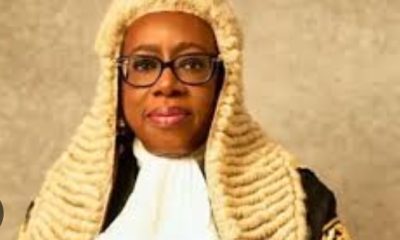
 Uncategorized9 months ago
Uncategorized9 months agoBenue govt drags NDIC to Federal High Court over illegal sell of shares …Demands N2.6billion damages


